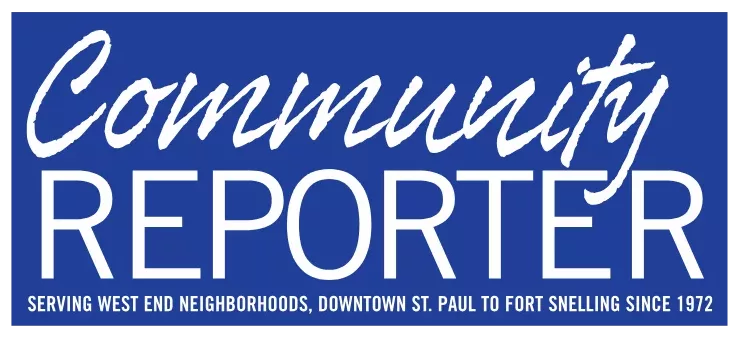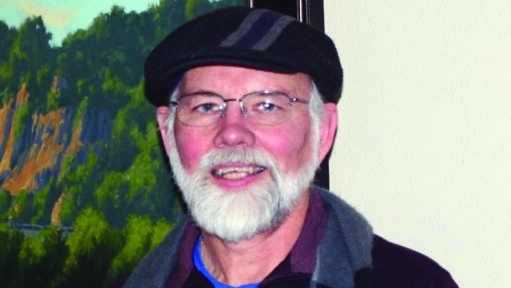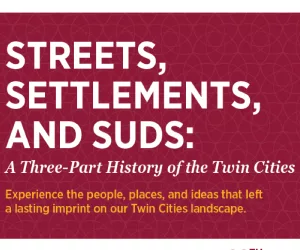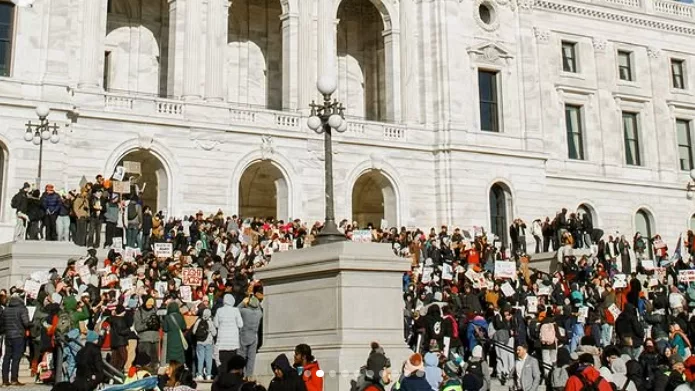Building an Antiracist Community
By Tim Johnson
As we heard the joyous news that our grandson had been born, I knew I had no qualms or hesitation about being known as grandpa. It might have something to do with having lived and grown up with my own grandfather, a man who we loved and respected. In either case, I was ready for this new role. I delight every time we see our son or daughter-in-law and our grandson’s outstretched hands are accompanied by, “go to grandpa”. It is, for me, a name of endearment.
It was especially jarring therefore when, exiting a coffee shop on Grand Avenue, the person entering as I was leaving looked at me and said, “there you go grandpa”. On this man’s lips “grandpa” sounded more like an insult than a term of endearment. He wasn’t exactly young himself, with plenty of gray in his beard, but he also knew nothing about me, whether I had children or grandchildren. Grandpa on his lips sounded more like a term of diminishment, as in you are well past the age of bringing value into this world. Perhaps it was overreacting, but it was hard to read any kindness or charity in the words he used or the way in which he said them.
The comment lingered with me throughout the day and it caused me to think about the many slights and at times innocent sounding comments to which people are subjected because of gender, sexual identity, race or disability of some sort. One can add to that list, age.
As an older white male, I have lived my life largely free of being discounted or diminished by virtue of a social grouping to which I belong or have been assigned. It would be a serious stretch to equate a late in life slight associated with age to a lifetime of dealing with comments and actions that serve little purpose other than to diminish. As a young clergy member, I often heard female colleagues speak about how they were talked down to by parishioners in ways that would never happen to a male or would have their voices ignored by male colleagues. In those years, it often led female clergy to leave the ministry. Being referred to as “grandpa” in a way that sounded and felt diminishing merely offers a window into what others have contended with for a long time.
In his book, How To Be An Antiracist, Ibram X. Kendi recalls an experience from his childhood of a young shy black girl who musters the courage to raise her hand for the teacher’s attention. As Kendi recounts, “The teacher looked at her, looked away, and instead called on a White hand as soon as it was raised.” Kendi then references the term “microaggression,” coined in 1970 by Harvard Psychiatrist Chester Pierce. It was a way of distinguishing the daily slights to which black people are subjected against the macroaggressions of racist policies affecting such things as housing, education and the judicial system. Kendi has since dropped the term microaggression in favor of what he considers a more accurate description of racist abuse. Cumulatively this often daily abuse affects one’s mental and physical health in a host of ways.
In many respects, racist policies are easier to address because they can be named and with enough political will changed. Our capacity to diminish one another by assigning negative attributes to people due to a particular identity is in many respects more challenging because it asks a measure of charity, kindness, understanding and respect from each of us. Yet, at the same time it does offer us the opportunity to become the type of change we wish to see in the world, simply by attending to our own interactions and how we treat those around us.
For me, being called “grandpa” is an identity I celebrate and in so doing am reminded that we all have identities to celebrate and affirm.
Tim Johnson is a retired pastor for United Church of Christ.







Leave a Reply